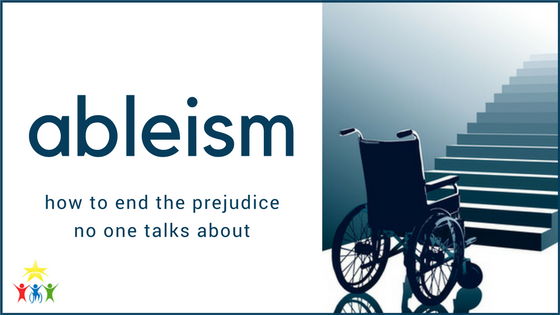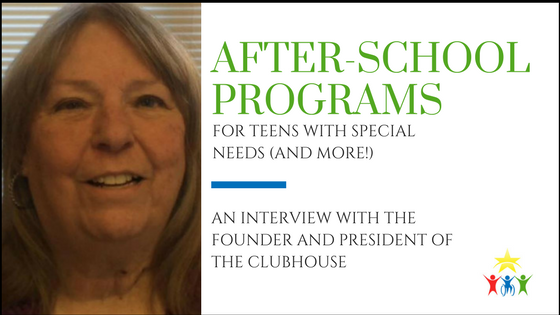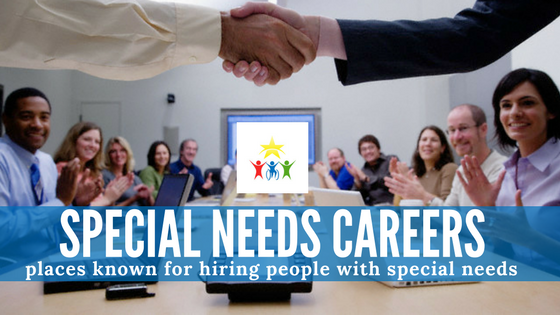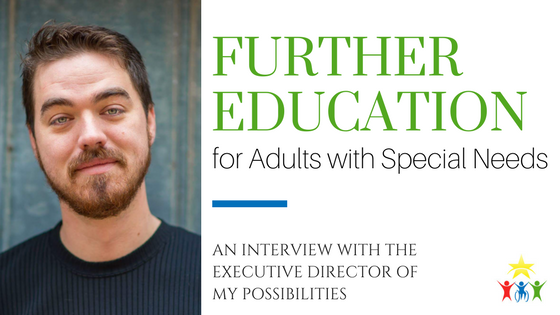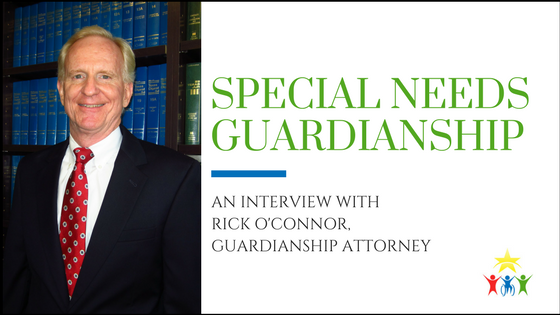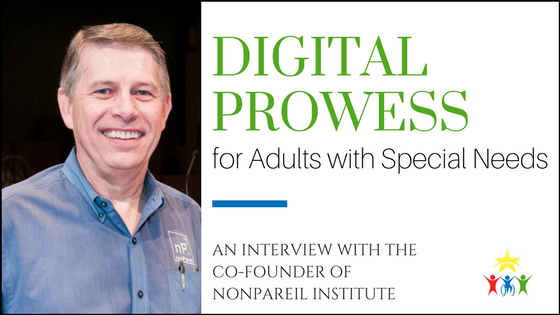Ableism: How to End the Prejudice that No One Talks About
Image: “Wheelchair and stairs” by Christos Doulkeridis (edited in Canva)
12.6 percent of people in the United States are living with disabilities as of 2015, according to the American Communications survey. That’s over one in eight people. Despite this vast number within the population, individuals with disabilities still face discrimination. However, perhaps not in ways you may be thinking of. Many, if not most, people with disabilities are victims of ableism.
Ableism is a form of discrimination that has been normalized in our society. While the dictionary may define ableism as discrimination in favor of more able-bodied individuals, it is so much more than that. Ableism is rooted in our own lack of understanding of the experiences of people with disabilities. Ableism is integrated in how our society views disabled people. Ableism is “a set of practices and beliefs that assign inferior value (worth) to people who have developmental, emotional, physical or psychiatric disabilities,” according to Stop Ableism Inc. It is the belief that having a disability is considered a defect rather than simply a dimension of difference.
Ableism is the root cause of the marginalization and discrimination disabled people are subjected to. It is important that disabled people understand their value. It is important that they feel valued. In order to do so, it is necessary for us, as a society, to scrap our ableist tendencies.
End ableism by stopping these behaviors immediately:
1. Using Offensive Language
Many of us use ableist language without even realizing it. Many ableist words have, in fact, been naturalized into the English language. Perhaps the most common ableist words include “crazy,” “insane” and “retarded.” These are words many people use without a second thought, without even realizing how offensive they may be. What’s even worse is when people defend their ableist language by labelling those who question them as “too sensitive” or “too hung up on being politically correct.”
Using ableist language is not so much about using offensive terms but more about the feeling they promote. By using ableist language, you are making actual disabled people, regardless of whether or not you are talking to them directly, feel uncomfortable. You are unconsciously displaying your views. You are labelling mentally, physically and emotionally disabled peoples as outside of the norm. You are making them feel unwelcome. This, in turn, makes them feel as if they do not belong. That they are less entitled than their able-bodied counterparts.
The normalization of ableist language within our society promotes the privilege of able-bodied individuals. It devalues the disabled experience and suggests that disabled individuals are less entitled to their rights. It helps to use people-first language. The purpose of people-first language is to refrain from the perceived and subconscious dehumanization that comes when talking about people with disabilities.
2. Assuming Disabled Individuals Need Your Help
When the presence of disabled individuals is not as valued or given as much attention, people adopt a rather narrow minded perspective of special needs. They begin to assume what disabled people want or what their needs may be. This devalues that disabled experience.
Able-bodied individuals are also wrong in assuming individuals with special needs need help. It is not your responsibility to help individuals with special needs when they do not ask for it (unless they are obviously struggling, like in an emergency situation). If they need it, they will ask for your help. Granted, there are some disabled individuals who are not able to express what they want or they may need, it is inappropriate to assume so. A blogger who is disabled, Tiffany Carlson, wrote in a Huffington Post article, “Automatically helping us without asking first should never be done. We know when to ask for help. Just wait for us to speak up.”
3. Assuming Disability Is Always Visible
Sometimes you may pass someone parking in a disabled parking spot and you may notice that they don’t look disabled. They may not be in a wheelchair or on crutches. You may pass them a dirty look because you think they’re taking away the spot of someone who actually needs it. You may not mean to but by doing so, you are practicing ableism.
There are times when you cannot tell whether or not a person is disabled simply based off of their appearance. Some disabilities, like mental illness or organ deficiencies, are invisible, meaning you cannot see them. While “the general qualifications for the accessible parking spaces include those using chairs, walkers, crutches, canes and assistive dogs, most of us do not realize they also include certain impaired functions of the heart or lungs, as well as conditions which are worsened to a specified impairment by walking a certain distance,” according to the Invisible Disabilities Association.
It is ableist to assume you know what someone is going through. Everyone has their own experience, their own story to tell. Their disability may be part of that story but it may be also be a chapter hidden away on pages that may not be printed for the world to see.
4. Feeling Entitled To Know How Someone Became Disabled
A person’s disability is their own personal business. Whether or not they choose to share with you how they came to acquire their disability is completely up to them. It is information that does not affect you in any way. It is information you do not need to know. Therefore, there is no need to ask for it.
In an article for Everyday Feminism, writer Erin Tatum wrote, “Able-bodied people will often assume that our existence represents some kind of mystery that they need to get to the bottom of.” This is inappropriate behavior especially as many people acquire their disabilities after a traumatic event, like an accident. Able-bodied individuals are not entitled to obtaining such information and must refrain from doing so in order to prevent ableist behavior.
5. Stereotyping
Just like anyone, regardless of sex, age, orientation or race, disabled people need to be treated with the same dignity and respect as well. In order to do so, it is crucial not generalize, assume or stereotype individuals with disabilities. It is more important to focus on disabled people as just that, people, rather than their disability.
It helps to use people-first language in order to legitimize a person with a disability’s presence as a person, beyond their disability. It’s the difference in saying “autistic child” and “a child with autism.” It helps to emphasize abilities not limitations. For example, you can say “a man walks with crutches” instead of, “he is crippled.” A disability does not define a person. It’s important you don’t repeat negative terms that stereotype, devalue or discriminate, just as you would avoid racial slurs. Chances are, a person’s disability is probably irrelevant to your conversation anyway.
6. Not Providing Accessibility For People With Different Needs
While we have progressed significantly as a society by installing many wheelchair accessible ways of entry in most buildings within the United States, we still have a long way to go. There are many more disabilities that need to be taken into consideration.
Here are a few accommodations that need to be made in order to provide accessibility for people with different needs:
- using braille on signs
- providing access to seeing-eye dogs/assistant dogs
- establishing ergonomic workspaces
- providing easy to grip tools, incorporating closed captions
- having class note-takers and recording devices for lectures
Making places more accessible to people with different needs can be expensive and inconvenient to some. However, it must be understood that a lack of accessible resources can also have a significant impact on the health and well-being of individuals with disabilities.
According to the US National Library of Medicine, a study was conducted to “explore the reproductive health care experiences of women with physical disabilities and how reproductive health care experiences could be improved.” The study showed that women with physical disabilities “encountered numerous barriers to quality reproductive health care services, including inaccessible equipment and facilities, limited contraceptive options, health care providers’ insensitivity and lack of knowledge about disabilities and limited information tailored to their needs.” The study also noted that “accessing reproductive health care services is so difficult that some women avoid regular gynecologic visits.”
Lack of accessibility can be detrimental to the health of many disabled people and is a major sign of ableism. A lack of accessibility implies that individuals with special needs are unwelcome and not valued in certain areas. It is our duty as a society, to make places more accessible to everyone.
7. Refusing To Hire Disabled Individuals For Jobs Within Their Capabilities
The Americans with Disabilities Act of 1990 (ADA) makes it unlawful to discriminate in employment against a qualified individual with a disability. Yet, many employers still continue to do so. As of June 2017, the unemployment rate of disabled individuals is 8.9 according to the Bureau of Labor Statistics. It is over two times that of the unemployment rate of individuals without disabilities, which is 4.3.
When interviewing candidates for a job opening, be sure not to rule out any candidates with disabilities. They deserve the same opportunities as everyone else. Remember not to ask if someone has a disability during a job interview and do not assume their capabilities.
Here are some ways you, as an employer, can better accommodate your employee with special needs:
- learn where to find and recruit individuals with disabilities
- provide written job descriptions listing all the essential functions of the job
- make forms available to those with visual disabilities
- train supervisors on how to make reasonable accommodations
- remember that those protected by the ADA include individual who have AIDS, cancer, brain-injured, deaf, blind, mentally retarded and learning disabled
8. Failing to Check Your Privilege
If an elevator breaks down for some reason and you need to get to the fourth floor, will you be able to? Sure, you might be a little winded from climbing four flights of stairs but that feeling will disappear in a couple of minutes. Why? Because you are an able-bodied individual.
Although you might feel fine after climbing four flights of stairs, someone else might not. Someone else might not be able to climb those stairs in the first place. Someone else might not have the coordination to climb those steps or maybe they have to sit in a wheelchair and wait for the elevator to start running again.
Many able-bodied individuals fail to recognize the privilege of having access to every and any space accessible. They abuse that privilege, although most times without meaning to, by using resources allocated for disabled individuals. They may park in a parking spot reserved for disabled people or perhaps use a handicapped bathroom stall.
If you can and are able, it is best to keep away from using these facilities as there is a chance that someone who actually needs them will stop by. Remember to check your privilege as doing so prevents you from abusing it.
About the Author
Meraal Hakeem is currently pursuing a Bachelor of Arts at the University of Texas at Austin. In her free time, Meraal enjoys reading, writing and volunteering with various organizations to raise awareness of different human rights issues present in her community.

